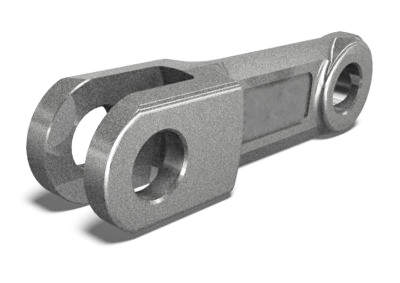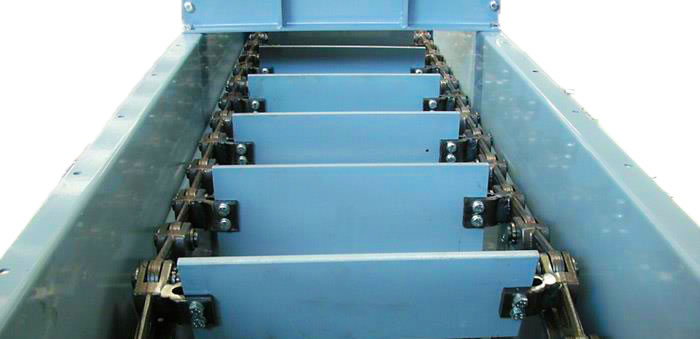
What are Forged Chains and Sprockets?
Forged chains and sprockets are key mechanical components used to transfer motion and power between different parts of machinery. A sprocket is a wheel with teeth that engage with a chain, allowing the transmission of rotary motion between shafts. Chains, typically made from interlinked metal segments, are forged to enhance their durability and strength.
The forging process involves shaping the metal under extreme heat and pressure, creating components that can withstand heavy loads, high torque, and harsh environments. Forged chains and sprockets are widely used in various industries because of their robustness, reliability, and ability to handle continuous operation in challenging conditions.
What Are the Uses of Forged Chains and Sprockets?
Forged chains and sprockets are commonly used to transmit power between two rotating parts of a machine. These components provide efficient and smooth operation in systems that require precision and synchronization, such as conveyor belts, engines, and industrial equipment. The use of forged chains and sprockets ensures a more reliable performance in applications that demand strength, durability, and resistance to wear.
What Materials Are Forged Chains and Sprockets Made of?
Forged chains and sprockets are usually made from high-quality metal alloys, such as carbon steel, stainless steel, or chromium-nickel alloys. These materials are selected for their strength, wear resistance, and ability to withstand high temperatures and harsh working environments. The forging process improves the metal’s structural integrity, creating parts that can endure heavy stress and continue operating efficiently over time.
Applications of Forged Chains and Sprockets
Forged chains and sprockets are versatile and widely used across numerous industries. Their applications include:
- Conveyor Systems: In manufacturing and distribution, forged chains and sprockets are used in conveyor belts to move products efficiently between different stages of production.
- Automotive Engines: These components are found in engines, where they help transmit power between the crankshaft and camshaft, ensuring proper timing and smooth engine operation.
- Agricultural Equipment: Tractors, harvesters, and other farming machinery use forged chains and sprockets to transfer motion and manage heavy loads in demanding field conditions.
- Mining Operations: In mining equipment, forged chains and sprockets are essential for the continuous movement of materials such as coal, minerals, and ores.
- Heavy Machinery: Construction and industrial machinery depend on these components for power transmission, ensuring that machines like bulldozers and cranes can operate smoothly and handle large workloads.
In Which Industries Are Forged Chains and Sprockets Used?
Forged chains and sprockets are critical components in a wide range of industries, particularly those that rely on heavy-duty machinery. Some of the key industries that utilize forged chains and sprockets include:
- Automotive Industry: These components are crucial for engines, transmission systems, and other powertrain elements.
- Agriculture: Tractors and other farming equipment require durable chains and sprockets to operate efficiently in tough field environments.
- Manufacturing: In production plants, forged chains and sprockets are essential for conveyor systems and industrial machinery.
- Construction: Heavy equipment such as excavators and cranes rely on these components to transmit power and perform complex tasks.
- Mining: Mining operations depend on forged chains and sprockets for the continuous movement of materials under extreme conditions.
How Are Forged Chains and Sprockets Cleaned?
Regular cleaning of forged chains and sprockets is vital for maintaining their performance and longevity. Cleaning these components ensures that dirt, debris, and excess lubrication do not accumulate, which can lead to friction, wear, and decreased efficiency. The cleaning process generally includes:
- Using Proper Cleaning Agents: Depending on the material, industrial solvents or degreasers should be applied to remove dirt and grease.
- Manual Cleaning: Chains can be manually scrubbed with brushes, while sprockets are typically wiped down to ensure thorough removal of contaminants.
- Lubrication After Cleaning: After cleaning, chains and sprockets should be lubricated with the appropriate oil or grease to minimize friction and wear during operation.
Forged chains and sprockets are essential for a wide range of industrial applications, from automotive engines to conveyor systems. Their durability and ability to handle high loads make them indispensable in industries that require long-lasting, reliable components. By using high-quality materials and following proper cleaning and maintenance procedures, forged chains and sprockets ensure efficient and uninterrupted operation across various sectors.





